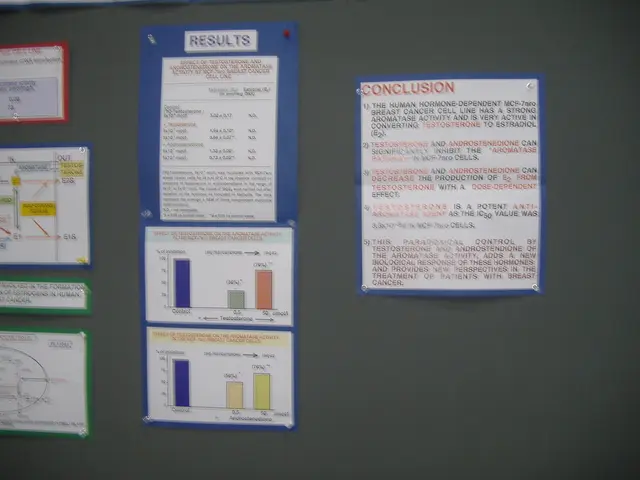Wary Economy Signals Repercussions of Dobrindt's Tougher Border Measures for Trade and Commuters
Concerns Arise over Potential Trade Barriers from Dobrindt's Proposed Strict Border Controls in Germany
Alexander Dobrindt, Germany's freshly appointed Interior Minister, is igniting apprehensions from the economic sector with his plans for stringent border controls. The "Handelsblatt" reported on this tension on a Wednesday, with associations voicing worries about the potential barriers that these measures may impose on cross-border trade and travel for border residents. The Association of Foreign Trade even pressed for the controls to be temporarily loosened.
According to Volker Treier, the heavyweight of foreign trade at the German Industry and Commerce Chamber (DIHK), the corona crisis itself demonstrated the burden that restricted border traffic could inflict upon the economy. Amongst the politicians' mission to curb unlawful immigration, the Chamber emphasized the importance of allowing essential deliveries and cross-border trade to proceed seamlessly. A robust European internal market and the Schengen area are "indispensable" for the internationally connected German economy.
Treier also flagged up the prospective implications for border commuters and service providers. Specific sectors like regional retail trade, border restaurants, and healthcare were identified as vulnerable, as they heavily rely on free goods and people flow.
Economic ramifications across sectors
Cross-Border Trade
Greater border checks are anticipated to result in transport delays, particularly along the Austrian-German border, potentially jeopardizing the efficiency of just-in-time supply chains essential to the manufacturing and retail industries in Germany. This, in turn, may raise transportation costs, insurance premiums, and inventory holding expenses for companies reliant on effortless cross-border logistics, reducing their competitiveness and driving up the cost of imported goods.
Uncertain regulatory landscape
The ambiguity about how new controls will align with EU regulations can create uncertainty, deterring investment in sectors dependent on smooth cross-border operations.
Border Commuters
Tens of thousands of daily workers cross the German border for jobs in sectors like health, care, gastronomy, and retail. Stiffer controls and potential identity checks could deter or delay commuters, exacerbating labor shortages in these sectors and concurrently raising absenteeism and recruitment costs.
Specific Industries
Retail Trade
Border towns and cities that boast thriving cross-border shopping may witness a decline in clientele due to prolonged wait times and perceived hassle, jeopardizing local businesses. Additionally, retailers reliant on prompt restocking from neighboring countries may face stock shortages and increased operational costs.
Gastronomy
The restaurant and hotel industries often employ cross-border workers. Stricter controls could curtail access to this workforce, impacting service quality and operating hours. A potential decrease in tourists, particularly day-trippers from neighboring countries, could also hit the sector's revenue.
Care and Health Sectors
Both the German care and health sectors rely significantly on cross-border workers, mainly from Poland and Austria. As a consequence of stricter controls, staff shortages could worsen even in already troubled sectors, potentially leading to decreased service quality and higher costs for providers.
Note: The table below offers a summary of the primary economic impacts across various sectors:
| Sector | Key Economic Impact(s) ||--------------------|----------------------------------|| Cross-Border Trade | Delays, increased logistics costs || Border Commuters | Labor shortages, increased absenteeism|| Retail Trade | Decreased foot traffic, supply chain disruptions|| Gastronomy | Labor shortages, tourist decline|| Care & Health | Staffing crises, increased operational costs, service degradation|
Broader economic considerations
- Bilateral Relations: Tension with neighboring countries could provoke retaliatory measures, thereby further exacerbating trade and labor mobility challenges.
- Political and Legal Challenges: The legality of Dobrindt's tougher border measures under EU law remains questionable, potentially sparking legal conflicts that may destabilize the economic environment.
In conclusion, the proposed stricter border controls by Dobrindt may trigger adverse economic consequences for cross-border trade, labor mobility, and vital sectors like retail, gastronomy, and care. The severity of these impacts will depend on the measures' enforcement intensity and the response of neighboring countries.
- The Association of Foreign Trade has urged the temporary relaxation of Dobrindt's stricter border controls, fearing their potential impact on cross-border trade and travel for border residents.
- Volker Treier, from the German Industry and Commerce Chamber (DIHK), points out that the corona crisis demonstrated the economic burden of restricted border traffic and stresses the need for seamless essential deliveries and cross-border trade.
- The prospective increase in transport delays due to stricter border checks, particularly along the Austrian-German border, poses a threat to the efficiency of just-in-time supply chains crucial to the manufacturing and retail industries in Germany.
- The upcoming border measures could lead to labor shortages and increased absenteeism in sectors like health, care, gastronomy, and retail, as tens of thousands of daily workers may be deterred or delayed by stiffer controls and potential identity checks.








